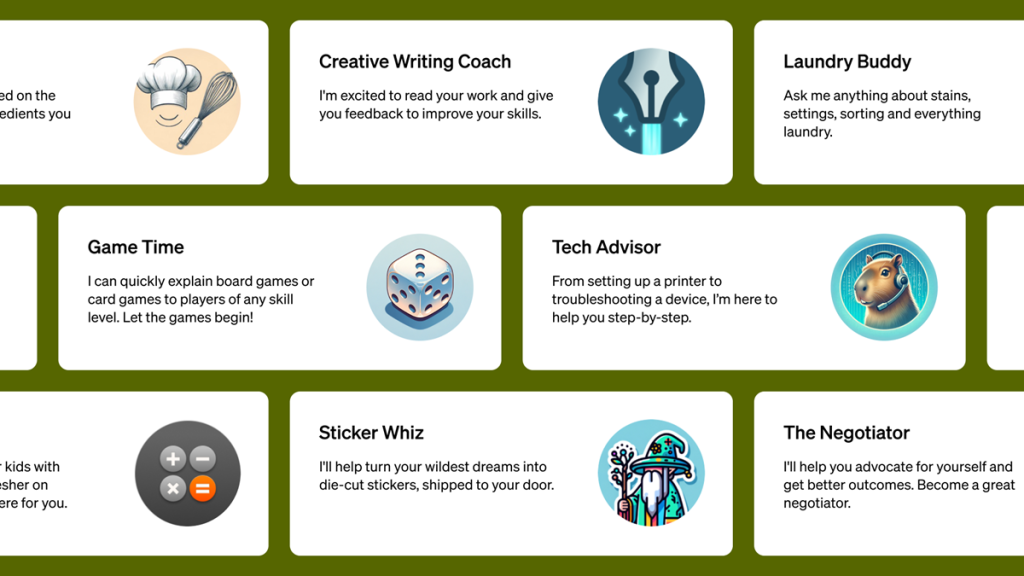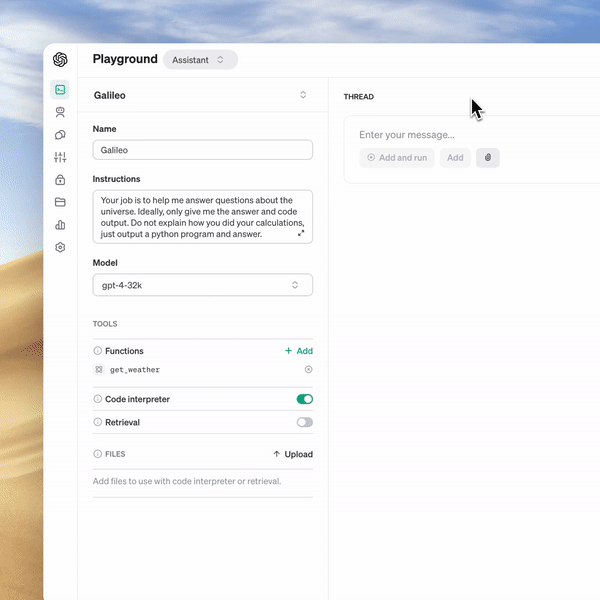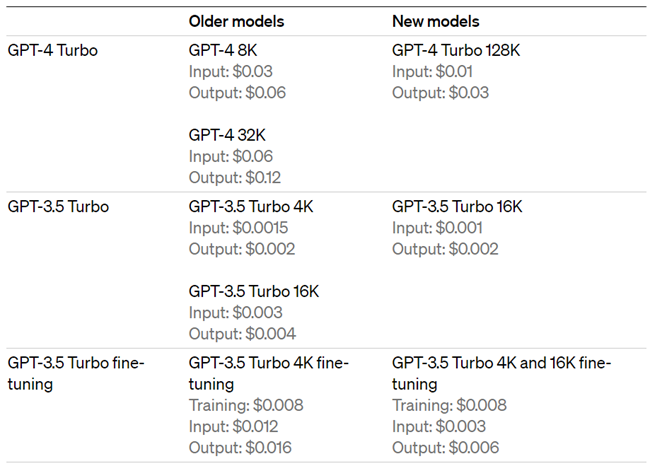
At its DevDay, OpenAI has announced a host of exciting developments, making it easier than ever to harness the power of AI. These updates aim to empower users and provide more options for customization, while maintaining a strong focus on privacy and safety.
Let’s dive into the key highlights of OpenAI’s announcement:
Custom Versions of GPTs
OpenAI introduces – custom versions of ChatGPT called GPTs. These customized models are designed to serve specific purposes, making AI more tailored and useful in everyday life, work, or leisure.
Easily Create Your Own GPTs: No coding skills are required to build your GPT. You can personalize it for personal use, within your company, or even share it publicly.
It’s as simple as having a conversation, providing instructions, and selecting its capabilities, like web searching, image creation, or data analysis.
The GPT Store
OpenAI is launching the GPT Store, a platform where you can publicly share your GPT creations. Here’s what you can expect:
- Sharing Your GPTs: You can already create and share GPTs, and soon they will be searchable and may gain recognition on leaderboards.
- Monetize Your GPT: In the near future, you’ll have the opportunity to earn money based on the popularity of your GPT.
Privacy and Safety
OpenAI takes privacy and safety seriously, offering robust controls and safeguards:
- User Control: Your conversations with GPTs are not shared with creators. You decide whether data is sent to third-party APIs.
- Privacy Choices: Creators can choose whether user chats improve and train their models.
- Safety Measures: OpenAI has implemented new systems to review GPTs to prevent harmful or inappropriate content. Builders can verify their identity, and there’s an option to report concerns.
Connect GPTs to the Real World
In addition to its built-in capabilities, developers can define custom actions by connecting GPTs to external data sources or functions, allowing them to perform a wide range of tasks, such as database queries, email integration, or acting as a shopping assistant.
Enterprise-Focused GPTs
Starting November 8, 2023, enterprises can leverage GPTs for internal use, enabling users within their organizations to create and share AI models securely. These GPTs will not be used to improve OpenAI’s models, ensuring data privacy.
Community Involvement
OpenAI emphasizes the importance of community involvement in shaping AI. They aim to broaden the group of people influencing AI development and are committed to building AI with, not just for, the community.
ChatGPT Plus: A More Convenient Experience
ChatGPT Plus now offers fresh information up to April 2023, making it a one-stop solution for various tasks. Users can access features like DALL·E, browsing, and data analysis without model-switching. It also supports file attachments for searching PDFs and other document types.
New Models and Developer Products
1) GPT-4 Turbo with 128K Context: OpenAI is introducing GPT-4 Turbo, a more capable model with a vast context window, available at a more affordable price. It’s accessible for developers to try, with a stable release coming soon.
2) Function Calling Updates: Function calling enhancements provide improved accuracy and the ability to call multiple functions in a single message, streamlining interactions with the model.
3) Improved Instruction Following and JSON Mode: GPT-4 Turbo excels in following instructions and supports JSON mode, ensuring valid JSON output. Developers can control the model’s response format.
4) Reproducible Outputs and Log Probabilities: The new seed parameter enables reproducible outputs, and OpenAI will soon provide log probabilities for tokens, aiding features like autocomplete.
5) Updated GPT-3.5 Turbo: This version offers a 16K context window by default, with improved instruction following, JSON mode, and parallel function calling.
6) Assistants API, Retrieval, and Code Interpreter: OpenAI releases the Assistants API, enabling the creation of purpose-built AI with capabilities like code interpretation and retrieval. It allows for flexible applications within various domains.

New Modalities in the API
1) GPT-4 Turbo with Vision: GPT-4 Turbo can now process images, opening up new possibilities like image captioning and analysis. Vision support will soon be part of the stable release.
2) DALL·E 3: Developers can integrate DALL·E 3 directly into their applications, offering creative image generation capabilities with built-in moderation.
3) Text-to-Speech (TTS): The TTS API allows developers to generate high-quality speech from text, with multiple voice options and optimized pricing.
Model Customization
1) GPT-4 Fine Tuning Experimental Access: OpenAI is exploring fine-tuning for GPT-4 and plans to offer experimental access to developers.
2) Custom Models: A Custom Models program is launching, allowing organizations to work closely with OpenAI to train GPT-4 models for their specific domains, with a focus on data privacy.
3) Lower Prices: OpenAI is reducing prices across its platform to pass on savings to developers.

4) Higher Rate Limits: OpenAI is doubling the tokens per minute limit for GPT-4 customers, helping developers scale their applications.
5) Copyright Shield: OpenAI introduces Copyright Shield to defend customers against legal claims related to copyright infringement.
6) Whisper v3 and Consistency Decoder: OpenAI is releasing Whisper large-v3, an improved speech recognition model. The Consistency Decoder is now open source, offering enhancements in text, faces, and more.
Availability
The latest features and updates to ChatGPT from OpenAI are already rolling out to users (Plus and Enterprise). Additionally, the Assistants API is now available in beta for developers.
